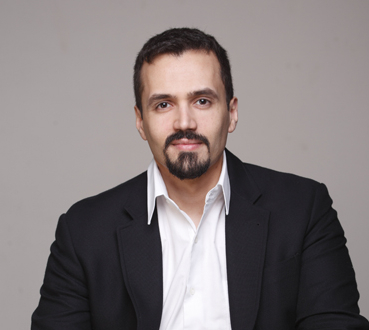By Ike Okonta
LAGOS: Nigeria’s sparkling new capital, is a city under siege. In August, Boko Haram, a shadowy and violent Muslim sect operating in the northeastern part of the country, bombed a building housing staff of the United Nations in the central part of the city, killing 23 people and seriously injuring 86. It was Nigeria’s first suicide bombing, and the audacity and ferocity of the attack have thrown government officials and citizens alike into panic mode.
Ever since its bloody repression of the Igbo secession bid in the late 1960’s, Nigeria’s military has prided itself on its ability to “neutralize” ethno-religious insurgency and preserve the country’s unity. Throughout the 1990’s and into the first years of the new millennium, it battled youth-led armed militias in the Niger Delta to assert the central government’s control of the region’s substantial oil receipts. The O’odua People’s Congress, an ethnic self-determination movement in the western part of the country, was also met with military force.
But attempts to apply the same severe medicine to Boko Haram have backfired. A military contingent that the government dispatched in 2009 to Maiduguri, the northern city that has become the sect’s bastion, killed its leader, Mohammed Yusuf, his father-in-law, and many of their followers. But the rump of Boko Haram then went underground, before re-emerging more ferocious and better organized.
Yusuf has since become a martyr, and daily attacks on hotels, bars, churches, and schools are usually followed with admonitions to Nigerians to shun the Western way of life. (Boko Haram, loosely translated, means “Western education is forbidden.”)
Spokesmen for the sect, which began as a fringe Islamic revivalist movement in 2002, say that their mission is to replace the secular state in northern Nigeria with a theocracy based on Sharia law. They also want the government to rebuild houses, mosques, and Islamic schools destroyed during the 2009 attack. The sect holds the northern political and religious elite in contempt, and does not recognize the authority of the Sultan of Sokoto, leader of Nigerian Muslims. Indeed, they blame northern political and religious leaders for the region’s mounting economic and political problems, and have killed several in the past two years.
But Boko Haram is only part of a profound crisis gripping Nigeria’s vast northern region. Ordinary northerners still believe that President Goodluck Jonathan, who hails from the Niger Delta in the south, cheated their hero, Muhammadu Buhari, a retired general and former head of state, in last April’s elections. More than 800 northerners died as enraged youths took to the streets in protest.
Moreover, unemployment and poverty rates are higher in Nigeria’s north than in other parts of the country. A powerful and wealthy feudal elite that has maintained power for two centuries through a mix of authoritarianism and religious sentiment now feels embattled following its loss of power in Abuja and, with it, the means to dispense patronage to formerly obsequious followers.
Given all of this, it is perhaps not surprising that impoverished and restive northern youth are joining Boko Haram in droves. The increasing sophistication of the attacks on public buildings has led to speculation that the sect is linked to international terrorist networks, probably Al-Qaeda in the Maghreb or Al Shabab in Somalia. To make Boko Haram appear more potent, its members play up this alleged affiliation, and even claim to have the support of “important” people in the northern part of the country.
Following threats that university campuses in the south would be bombed, anxious parents recalled their children and now warn them to stay away from the north. Nigeria, a fragile coalition of ethnic groups, may not be sliding into a second civil war (yet), but inter-ethnic relations could worsen if the Boko Haram menace is not quickly tackled.
There is raging debate in the country over how best to do that. Two days after former President Olusegun Obasanjo traveled to Maiduguri and met with a relative of the sect’s slain leader to initiate peace talks, a Boko Haram faction murdered the 49-year-old man. The military task force deployed to the area is still in place, and civil-society groups have accused soldiers of pillaging private property, raping women, and shooting innocent citizens.
Since taking power last April, President Jonathan has pursued a purely military strategy towards the sect. With the tentative peace moves stifled, the position of the hawks in his government, particularly that of National Security Adviser Owoye Andrew Azazi, will likely be strengthened.
The United States, Israel, and Britain have also expressed willingness to provide Nigeria with counter-terrorism support, but this “help,” if accepted, would only inflame passions in the country’s Islamic belt. The fundamental problem in northern Nigeria, as in other parts of the country, is deepening poverty, mass unemployment, and the widespread belief that Nigeria’s leaders are only looking after their own interests.
After 100 days in office, Jonathan and his ruling People’s Democratic Party appear indecisive about how to tackle these challenges. Most members of the president’s large cabinet are seat warmers. After the sound and fury of its recent elections, Africa’s most populous country appears set to face violence and chaos born of deprivation and neglect.
Ike Okonta, an Abuja-based policy analyst and writer, is currently a fellow of the Open Society Institute, New York. This commentary is published by DAILY NEWS EGYPT in collaboration with Project Syndicate (www.project-syndicate.org).

